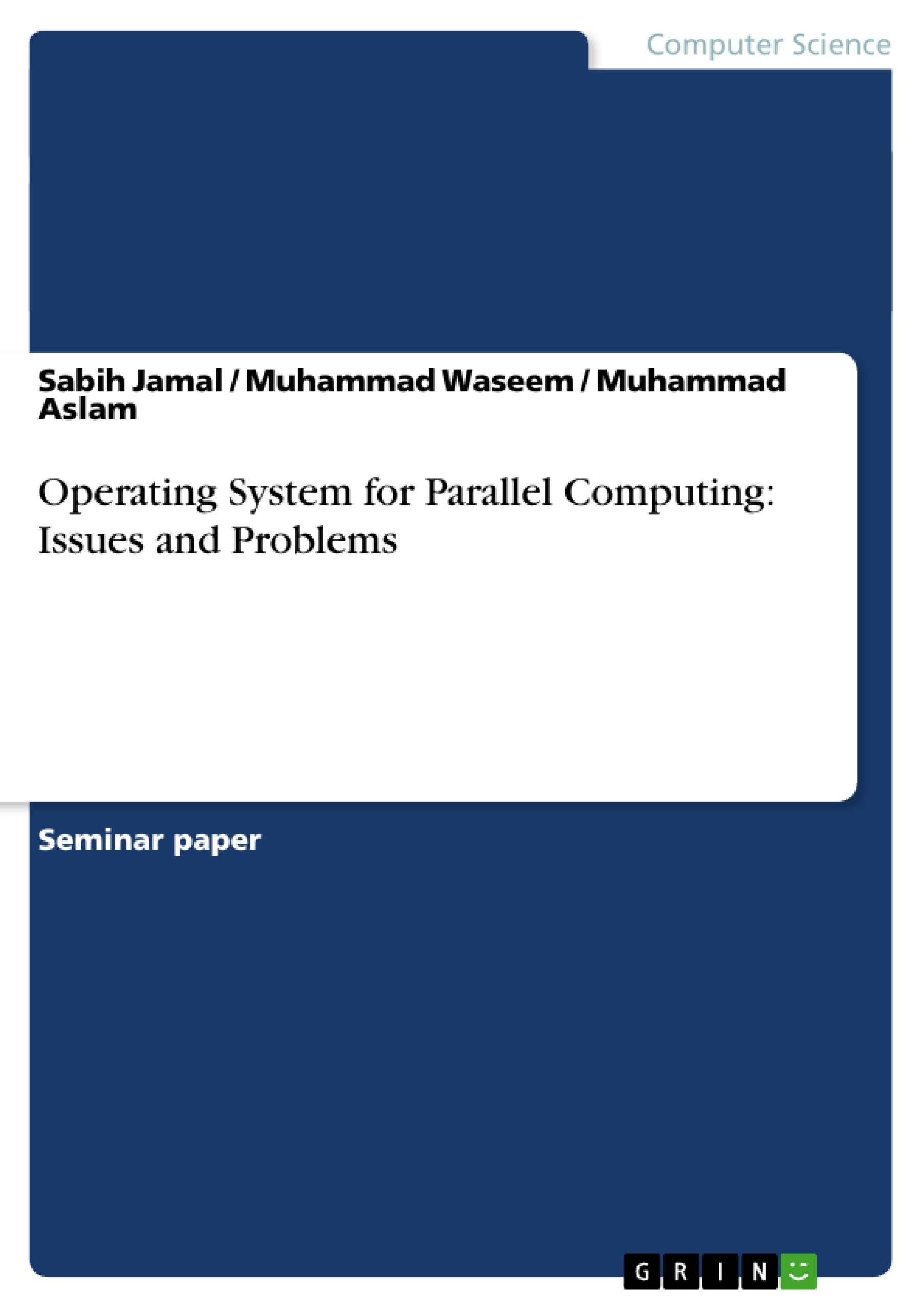Parallel computing attempts to solve many complex problems by using multiple computing resources simultaneously. This review paper is intended to address some of the major operating systems’ design issues for shared memory parallel computers like SMPs. Parallel computers can be classified according to the level at which the architecture supports parallelism, with multi-core and multi-processor computers The paper proceeds by specifying key design issues of operating system: like processes synchronization, memory management, communication, concurrency control, and scheduling in case of shared memory SMPs. It also elaborates some concerns of Linux scheduler, for shared memory SMPs parallel computing. The basic objective of the paper is to provide a quick overview of problems that may arise in designing parallel computing operating system.
Table of Contents
- Introduction
- Design Requirements
- Synchronization
- Scheduling
- Cost of Communication
- Granularity
- Memory Management
- Simultaneous Deadlock
- Proposed Methodology
- Parallel Processors' Scheduling Problems
- Problems in Load Sharing
- Self Scheduling Problem
- Issues in Scheduling Owing to Parallel Tasks' Inter Dependencies
- Related Work
- Linux Scheduler
- Quote paper
- Sabih Jamal (Author), Muhammad Waseem (Author), Muhammad Aslam (Author), 2014, Operating System for Parallel Computing: Issues and Problems, Munich, GRIN Verlag, https://www.grin.com/document/273160




